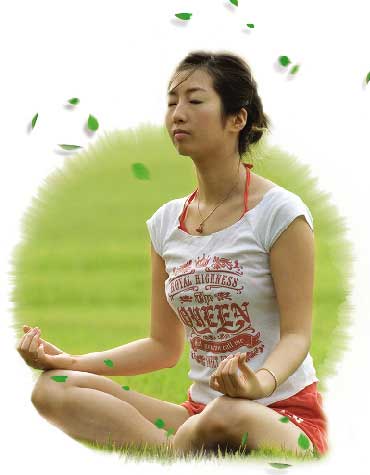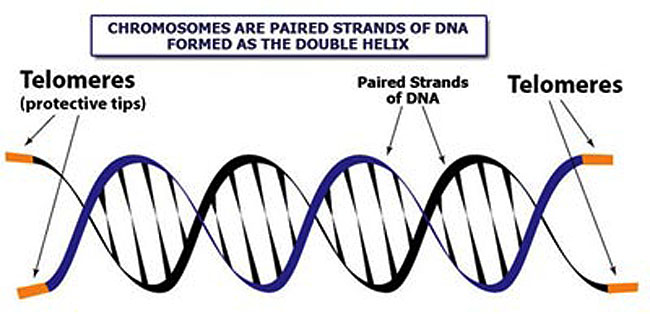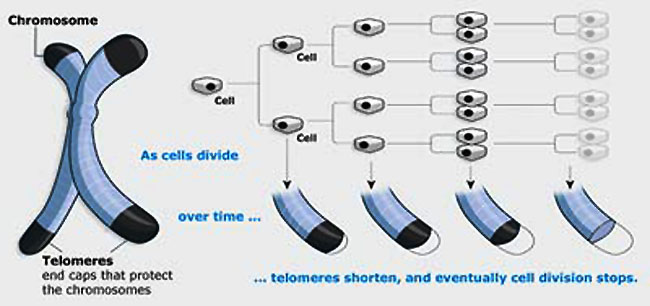現在位置 : 保健 > Health Benefits of Meditation
|
Meditation
Meditation is a practice in which an individual trains the mind or induces a mode of consciousness, either to realize some benefit or as an end in itself. The term meditation refers to a broad variety of practices (much like the term sports) that includes techniques designed to promote relaxation, build internal energy or life force (qi, ki, prana, etc.) and develop compassion, love, patience, generosity and forgiveness. A particularly ambitious form of meditation aims at effortlessly sustained single-pointed concentration single-pointed analysis, meant to enable its practitioner to enjoy an indestructible sense of well-being while engaging in any life activity. The word meditation carries different meanings in different contexts. Meditation has been practiced since antiquity as a component of numerous religious traditions and beliefs. Meditation often involves an internal effort to self-regulate the mind in some way. Meditation is often used to clear the mind and ease many health issues, such as high blood pressure, depression, and anxiety. It may be done sitting, or in an active way—for instance, Buddhist monks involve awareness in their day-to-day activities as a form of mind-training. Prayer beads or other ritual objects are commonly used during meditation in order to keep track of or remind the practitioner about some aspect of the training. Meditation may involve generating an emotional state for the purpose of analyzing that state—such as anger, hatred, etc.—or cultivating a particular mental response to various phenomena, such as compassion. The term "meditation" can refer to the state itself, as well as to practices or techniques employed to cultivate the state. Meditation may also involve repeating a mantra and closing the eyes. The mantra is chosen based on its suitability to the individual meditator. Meditation has a calming effect and directs awareness inward until pure awareness is achieved, described as "being awake inside without being aware of anything except awareness itself." In brief, there are dozens of specific styles of meditation practice, and many different types of activity commonly referred to as meditative practices. What is meditation?
Written by avyakt7 January 30, 2014 Short answer: Anything you want it to be … :-) These days you have many types of meditation: Full moon meditation, stress free meditation, Meditation on God, Mediation on the self, meditation with the flame, meditation to improve your concentration, Transcendental meditation, Peaceful meditation, after yoga class meditation, Zen meditation, Raja yoga meditation, Buddhist meditation….etc. A car takes you from point A to point B while protecting the passenger from the elements. That is some definition of meditation, if it was like a car. There are many types of cars to choose from, however. Meditation moves your consciousness. That is all. Where it gets moved, varies according to mileage… :-) That is according to your experience. Nevertheless, meditation as it is known today, is another attempt to free the self from the continuous turmoil caused by the incessant amount of thoughts…. Yes, it is the mind again. Since most individuals are leading a stressful life style where there are many places to go and so little time to get there; then any chance we have to stop ( Stop light for the car) and “take the time to smell the roses,” would be highly appreciated by the inner self, which could be experienced as an “inner smile” of bliss which could be called an experience with God, with the self, with Nature, with the world, with angels, with whoever you believe in or feel connected to… It is interesting to see how some people pay to “learn how to meditate,” here is the “how” for free: :-) Sit there and enjoy the moment. Be present. Let your mind go for a hike away from your feelings. That is all folks! Ohh yeah… if you expect to get something out of it, you will be disappointed. That is the catch! So, what about the mantra or the hocus pocus environment with the chanting of “Om” … Those are the car colors to pick for your own car. Some like it bright, others not too showy… What about posture? If you sit down, make sure that you know how to sit properly… The car needs to be aligned in its 4 wheels for the passenger to be comfortable in the ride…Easy enough? In those moments that we afford to give ourselves a little break from mundane business, is when the experience of fulfillment, enjoyment, bliss etc. could be felt. Some may get addicted to those experiences and very disappointed if they do not come very often… Again is the mind comparing, trying to achieve something and not allowing things to unfold naturally, as they are supposed to be. Is meditation able to change someone? It depends what we mean by “changing someone.” Meditation is not inner observation, although it could be used in that way and that could bring lasting changes in the self, when there is experience of “inner silence,” “inner peace” which could be described as “when you are not there” (your mind) that is the experience of being one with the totality of life. This experience could be called as “emptiness” or the experience of being “a-temporal” as my friend Mathias calls it. Many names and labels to describe the indescribable… As we integrate those moments of “chilling out” into our lives; meditation becomes living life as long as there is awareness. Mediation then, is no longer a 30 minutes routine of sitting someplace while listening to New age music, but living life itself turns into a meditative state of being. ================================== |
|
7 Facts About Meditation That May Surprise You
by Light Watkins August 25, 2013 1. Meditation is more than just closing your eyes. Meditation can initiate an incredibly restful physical and mental state of consciousness called the “Relaxation Response.” But merely closing your eyes won’t guarantee it anymore than turning off the lights guarantees that you’ll fall asleep at night. Your breath, body position, and the time of day also play a part in yielding deeper experiences. 2. You don’t need to meditate for hours. Meditating for an hour or two a day usually ends up being unsustainable, especially when you factor in work, kids, hobbies and recreational activities. 15-20 minutes has been shown to be optimal for meditation time. Even 5 or 10 minutes of meditation every day is better than meditating sporadically or not meditating at all. 3. There is a right way to meditate. There are more efficient ways to meditate just like there are more efficient ways to swim. With proper technique, swimmers can glide through water with ease. With no training, that same body of water becomes potentially hazardous. Likewise, proper meditation training will help you glide through your thoughts. But without training, you risk drowning in your thoughts, which can cause meditation to feel like torture. 4. Thoughts are a part of everyone’s meditation. No matter how long you’ve been meditating, you will experience thoughts. The difference in long term meditators and brand new meditators is brand new meditators fight their thoughts while long term meditators embrace their thoughts. Once you begin accepting your thoughts, meditation will feel a thousand times easier. 5. Meditation should feel easy. This idea that meditation needs to be hard and uncomfortable dates back to a time when people associated the practice with monasticism. But there are householder styles of meditation that have co-existed alongside of monk practices for thousands of years, and they can make meditation feel as natural as dreaming. If your meditation doesn’t feel that easy, it’s probably because you’re trying to meditate like a monk, and not like a householder. 6. Meditation is compulsory for optimum health. Every day, whether you meditate or not, stress accumulates in your body like trash accumulates in your house. If you don’t empty the trash on a regular basis, it will stink up your house. Likewise, if you don’t empty the stress from your body on a daily basis it will stink up your mind, and affect your health. Mental relaxation creates a perfect outlet for stress release, which gives practical value to daily meditation. 7. Not meditating is expensive. Did you know that the average American spends over $7,000 on every year on stress-related health issues, and that every major health problem we face as a society has strong links to stress accumulation? If you need convincing, Google “symptoms of stress” and see if you don’t find a multitude of health issues that affect you or people you know. Meditators have been shown to significantly reduce their instances of heart disease, cancer, infectious diseases and transportation accidents within the first few years of practice. ======================================== |
|
7 Health Benefits of Meditation
Relax - it's good for you. Anastasia Stephens 2009-8-20 It's a piece of advice yogis have given for thousands of years: take a deep breath and relax. Watch the tension melt from your muscles and all your niggling worries vanish. Somehow we all know that relaxation is good for us. Now the hard science has caught up: a comprehensive scientific study showing that deep relaxation changes our bodies on a genetic level has just been published. What researchers at Harvard Medical School discovered is that, in long-term practitioners of relaxation methods such as yoga and meditation, far more ''disease-fighting genes'' were active, compared to those who practised no form of relaxation. In particular, they found genes that protect from disorders such as pain, infertility, high blood pressure and even rheumatoid arthritis were switched on. The changes, say the researchers, were induced by what they call ''the relaxation effect'', a phenomenon that could be just as powerful as any medical drug but without the side effects. ''We found a range of disease-fighting genes were active in the relaxation practitioners that were not active in the control group,'' Dr Herbert Benson, associate professor of medicine at Harvard Medical School, who led the research, says. The good news for the control group with the less-healthy genes is that the research didn't stop there. The experiment, which showed just how responsive genes are to behaviour, mood and environment, revealed that genes can switch on, just as easily as they switch off. ''Harvard researchers asked the control group to start practising relaxation methods every day,'' says Jake Toby, hypnotherapist at London's BodyMind Medicine Centre, who teaches clients how to induce the relaxation effect. ''After two months, their bodies began to change: the genes that help fight inflammation, kill diseased cells and protect the body from cancer all began to switch on.'' More encouraging still, the benefits of the relaxation effect were found to increase with regular practice: the more people practised relaxation methods such as meditation or deep breathing, the greater their chances of remaining free of arthritis and joint pain with stronger immunity, healthier hormone levels and lower blood pressure. Benson believes the research is pivotal because it shows how a person's state of mind affects the body on a physical and genetic level. It might also explain why relaxation induced by meditation or repetitive mantras is considered to be a powerful remedy in traditions such as Ayurveda in India or Tibetan medicine. But just how can relaxation have such wide-ranging and powerful effects? Research has described the negative effects of stress on the body. Linked to the release of the stress-hormones adrenalin and cortisol, stress raises the heart rate and blood pressure, weakens immunity and lowers fertility. By contrast, the state of relaxation is linked to higher levels of feel-good chemicals such as serotonin and to the growth hormone which repairs cells and tissue. Indeed, studies show that relaxation has virtually the opposite effect, lowering heart rate, boosting immunity and enabling the body to thrive. ''On a biological level, stress is linked to fight-flight and danger,'' Dr Jane Flemming, a London GP, says. ''In survival mode, heart rate rises and blood pressure shoots up. Meanwhile muscles, preparing for danger, contract and tighten. And non-essential functions such as immunity and digestion go by the wayside.'' Relaxation, on the other hand, is a state of rest, enjoyment and physical renewal. Free of danger, muscles can relax and food can be digested. The heart can slow and blood circulation flows freely to the body's tissues, feeding it with nutrients and oxygen. This restful state is good for fertility, as the body is able to conserve the resources it needs to generate new life. While relaxation techniques can be very different, their biological effects are essentially similar. ''When you relax, the parasympathetic nervous system switches on. That is linked to better digestion, memory and immunity, among other things,'' Toby says. ''As long as you relax deeply, you'll reap the rewards.'' But, he warns, deep relaxation isn't the sort of switching off you do relaxing with a cup of tea or lounging on the sofa. ''What you're looking for is a state of deep relaxation where tension is released from the body on a physical level and your mind completely switches off,'' he says. ''The effect won't be achieved by lounging round in an everyday way, nor can you force yourself to relax. You can only really achieve it by learning a specific technique such as self-hypnosis, guided imagery or meditation.'' The relaxation effect, however, may not be as pronounced on everyone. ''Some people are more susceptible to relaxation methods than others,'' says Joan Borysenko, director of a relaxation program for outpatients at Beth Israel Deaconess Medical Centre in Boston. ''Through relaxation, we find some people experience a little improvement, others a lot. And there are a few whose lives turn around totally.'' 7 Health Benefits of Deep Relaxation The next time you tune out and switch off and let yourself melt, remind yourself of all the good work the relaxation effect is doing on your body. These are just some of the scientifically proven benefits … 1. INCREASED IMMUNITY Relaxation appears to boost immunity in recovering cancer patients. A study at the Ohio State University found that progressive muscular relaxation, when practised daily, reduced the risk of breast cancer recurrence. In another study at Ohio State, a month of relaxation exercises boosted natural killer cells in the elderly, giving them a greater resistance to tumours and to viruses. 2. EMOTIONAL BALANCE Emotional balance, means to be free of all the neurotic behavior that results from the existence of a tortured and traumatized ego. This is very hard to achieve fully, but meditation certainly is the way to cure such neurosis and unhealthy emotional states. As one’s consciousness is cleansed of emotionally soaked memories, not only does great freedom abound, but also great balance. As one’s responses then are not colored by the burdens one carries, but are instead true, direct and appropriate. 3. INCREASED FERTILITY A study at the University of Western Australia found that women are more likely to conceive during periods when they are relaxed rather than stressed. A study at Trakya University, in Turkey, also found that stress reduces sperm count and motility, suggesting relaxation may also boost male fertility. 4. RELIEVES IRRITABLE BOWEL SYNDROME When patients suffering from irritable bowel syndrome began practising a relaxation meditation twice daily, their symptoms of bloating, diarrhoea and constipation improved significantly. The meditation was so effective the researchers at the State University of New York recommended it as an effective treatment. 5. LOWERS BLOOD PRESSURE A study at Harvard Medical School found that meditation lowered blood pressure by making the body less responsive to stress hormones, in a similar way to blood pressure-lowering medication. Meanwhile a British Medical Journal report found that patients trained how to relax had significantly lower blood pressure. 6. ANTI-INFLAMATORY Stress leads to inflammation, a state linked to heart disease, arthritis, asthma and skin conditions such as psoriasis, say researchers at Emory University in the US. Relaxation can help prevent and treat such symptoms by switching off the stress response. In this way, one study at McGill University in Canada found that meditation clinically improved the symptoms of psoriasis. 7. CALMNESS The simple difference between those who meditate and those who do not, is that for a meditative mind the thought occurs but is witnessed, while for an ordinary mind, the thought occurs and is the boss. So in both minds, an upsetting thought can occur, but for those who meditate it is just another thought, which is seen as such and is allowed to blossom and die, while in the ordinary mind the thought instigates a storm which rages on and on. How to switch off stress How can you use relaxation's healing powers? Harvard researchers found that yoga, meditation and even repetitive prayer and mantras all induced the relaxation effect. ''The more regularly these techniques are practised, the more deeply rooted the benefits will be,'' Jake Toby says. Try one or more of these techniques for 15 minutes once or twice a day. Body Scan: Starting with your head and working down to your arms and feet, notice how you feel in your body. Taking in your head and neck, simply notice if you feel tense, relaxed, calm or anxious. See how much you can spread any sensations of softness and relaxation to areas of your body that feel tense. Once your reach your feet, work back up your body. Breath Focus: Sit comfortably. Tune into your breath, follow the sensation of inhaling from your nose to abdomen and out again. Let tension go with each exhalation. When you notice your mind wandering, return to your breath. Mantra Repetition: The relaxation response can be evoked by sitting quietly with eyes closed for 15 minutes twice a day, and mentally repeating a simple word or sound such as ''Om''. Guided Imagery: Imagine a wonderfully relaxing light or a soothing waterfall washing away tension from your body and mind. Make your image vivid, imagining texture, colour and any fragrance as the image washes over you. ==================================== |
|
Is this the first Proof that Meditation alters Cellular Activity?
ZME Science 2014-11-12 There’s an immense body of evidence that proves that meditation has significant beneficial effects for mental health, but it’s only recently that researchers in Canada discovered a link between mindfulness meditation and altered cellular activity in cancer patients. Biology and meditation: no longer mutually exclusive “We already know that psychosocial interventions like mindfulness meditation will help you feel better mentally, but now for the first time we have evidence that they can also influence key aspects of your biology,” said Linda E. Carlson, a psychosocial research and the lead investigator at the Tom Baker Cancer Centre, in a press release. She conducted the study alongside scientists from the University of Calgary. “It was surprising that we could see any difference in telomere length at all over the three-month period studied,” said Carlson. “Further research is needed to better quantify these potential health benefits, but this is an exciting discovery that provides encouraging news.” Telomeres are protein caps at the end of our chromosomes, sort of like the plastic tips at the end of a shoelace. These are essential for protecting our genetic data, make it possible for cells to divide, and hold some secrets to how we age and get cancer. Each time a cell divides, the telomeres get shorter. When they get too short, the cell can no longer divide; it becomes inactive or “senescent” or it dies. This shortening process is associated with aging, cancer, and a higher risk of death. So telomeres also have been compared with a bomb fuse. ZME Science previously reported how meditation can be a powerful tool to alter our mood, providing a proxy that later indirectly tackles cognitive dysfunctions like Alzheimer’s or help relieve pain. It’s effects on biological functions have been more or less discusses, and always under debate. We’ve all heard stories – maybe you personally know someone – about people who left to a retreat, relaxed by the beach, surf and meditate, then spontaneously cured from cancer. These stories, heart warming as they may be, are very difficult to test and as such must be regarded under a skeptical lens. But now have the first evidence that suggests mediation directly alters cellular activity, meaning that it might actually be involved in regulating bodily functions and maybe even help cure diseases. Cancer too, why not? Does meditation prevent aging? The team studied 88 breast cancer survivors who had completed their treatment at least three months were monitored, aged 55 years on average. All of the participants had to have experienced significant levels of emotional distress. The volunteers were grouped into three segments: • Mindfulness-Based Cancer Recovery group: participants attended eight weekly, 90-minute group sessions that provided instruction on mindfulness meditation and gentle Hatha yoga, with the goal of cultivating non-judgmental awareness of the present moment. Participants were also asked to practice meditation and yoga at home for 45 minutes daily. • Supportive Expressive Therapy group: participants met for 90 minutes weekly for 12 weeks and were encouraged to talk openly about their concerns and their feelings. The objectives were to build mutual support and to guide women in expressing a wide range of both difficult and positive emotions, rather than suppressing or repressing them. • Control group: participants attended one, six-hour stress management seminar. Before and after the study, each participants had their blood drawn and telemores measured. Lab reports show that both groups that underwent group therapy maintained their telomere length, while for the third group this had shortened. [ALSO SEE] Scientists prove ‘immortal worms’ can regenerate indefinitely and stay forever young Allison McPherson was first diagnosed with breast cancer in 2008. When she joined the study, she was placed in the mindfulness-based cancer recovery group. Today, she says that experience has been life-changing. “I was skeptical at first and thought it was a bunch of hocus-pocus,” says McPherson, who underwent a full year of chemotherapy and numerous surgeries. “But I now practise mindfulness throughout the day and it’s reminded me to become less reactive and kinder toward myself and others.” Study participant Deanne David was also placed in the mindfulness group. “Being part of this made a huge difference to me,” she says. “I think people involved in their own cancer journey would benefit from learning more about mindfulness and connecting with others who are going through the same things.” Next, the researchers plan on replicating the findings over a much longer period of observation than three months. While the research is definitely exciting on oh so many levels, we advise caution in receiving these findings. ======================================= |
|
Telomerase Activation & Aging
Telomerase Activate - A NOVEL Nobel Prize Winning Discovery 2009 saw the Nobel Prize for Physiology and Medicine go toward the discovery of “How chromosomes are protected by Telomeres and the Enzyme Telomerase.” Telomerase activation has been the focus of a tremendous degree of scientific study since the benefits were discovered in 1984. Serving as a kind of ‘Chromosome Defender’, Telomeres prevent the rapid deterioration of our chromosomes during the ongoing duplication process. As the telomeres shorten, the cells age. The process of Telomerase Activity and aging works to prevent the shortening of the telomeres in our cells, and supplementation of this process should be considered a vital part of any anti-aging treatment. Telomere Activation Therapy – Key to Longevity? Increase Your Quality of Life by Activating Your Telomeres Eat Right, get Plenty of Rest and Exercise, and maintain a Healthy Lifestyle has been the prescribed path for those who want to Stay Young, Healthy, Full of Life and Energy…Who Doesn’t? But even with that kind of time, focus and commitment there is going to be a rate of aging and deterioration of your physical structure. Those who want to Challenge That Process are pursuing the recent scientific studies that point to Shortened Telomeres as the cause of that deterioration, and are Reversing the Process with Telomerase Activation. Introduce YOUR Body – Telomere Sciences The Genes attached to your chromosomes are at any one moment directing TRILLIONS of cells to replicate, simply as part of the natural processes that keep us alive and healthy. The ends of these chromosomes are protected by ‘Telomeres’ that are analogous to the Plastic Tips on our Shoestrings. These play no part in our genetic replication other than to prevent the chromosomes from ‘fraying’ over time, and insures that our ‘copies’ are crisp and clear. These ‘defenders’ give up a bit of themselves with each duplication and eventually, when they get too short to continue, cause the cells to go into ‘replicative senescence’. This means that they are no longer able to replicate themselves; and the resulting effect contributes to the various conditions we refer to as ‘Old Age’. Studies have shown that the percentage of the population Over 60, with Long Telomeres, have increased Heart Health and Immune Systems as compared to age related counterparts with shorter Telomeres, and that these differences are directly related to the aging process. Though Professor Hayflick successfully established that cells were limited in the number of times that they could replicate (Termed the Hayflick Limit) and that this stoppage caused the cells to become ‘old’, he did not know the cause of the restriction. It was a full 30 years later that McMaster University’s Calving Harley and Carol Greider at Cold Spring Harbor Laboratory discovered that the Telomere Shortening were directly responsible for the onset of the Hayflick Limit. ================================= |
|





